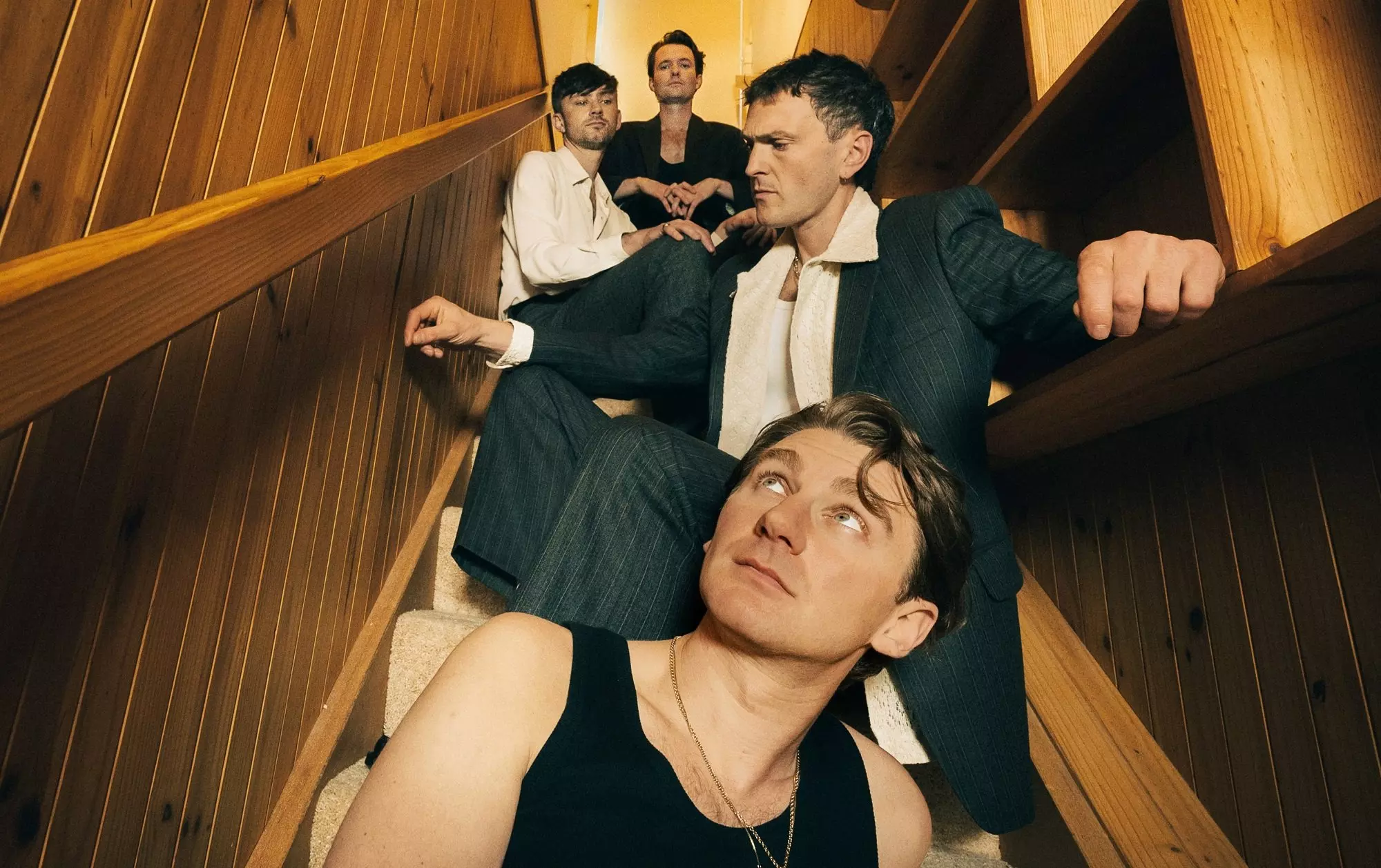Photo Courtesy of Atlantic Records
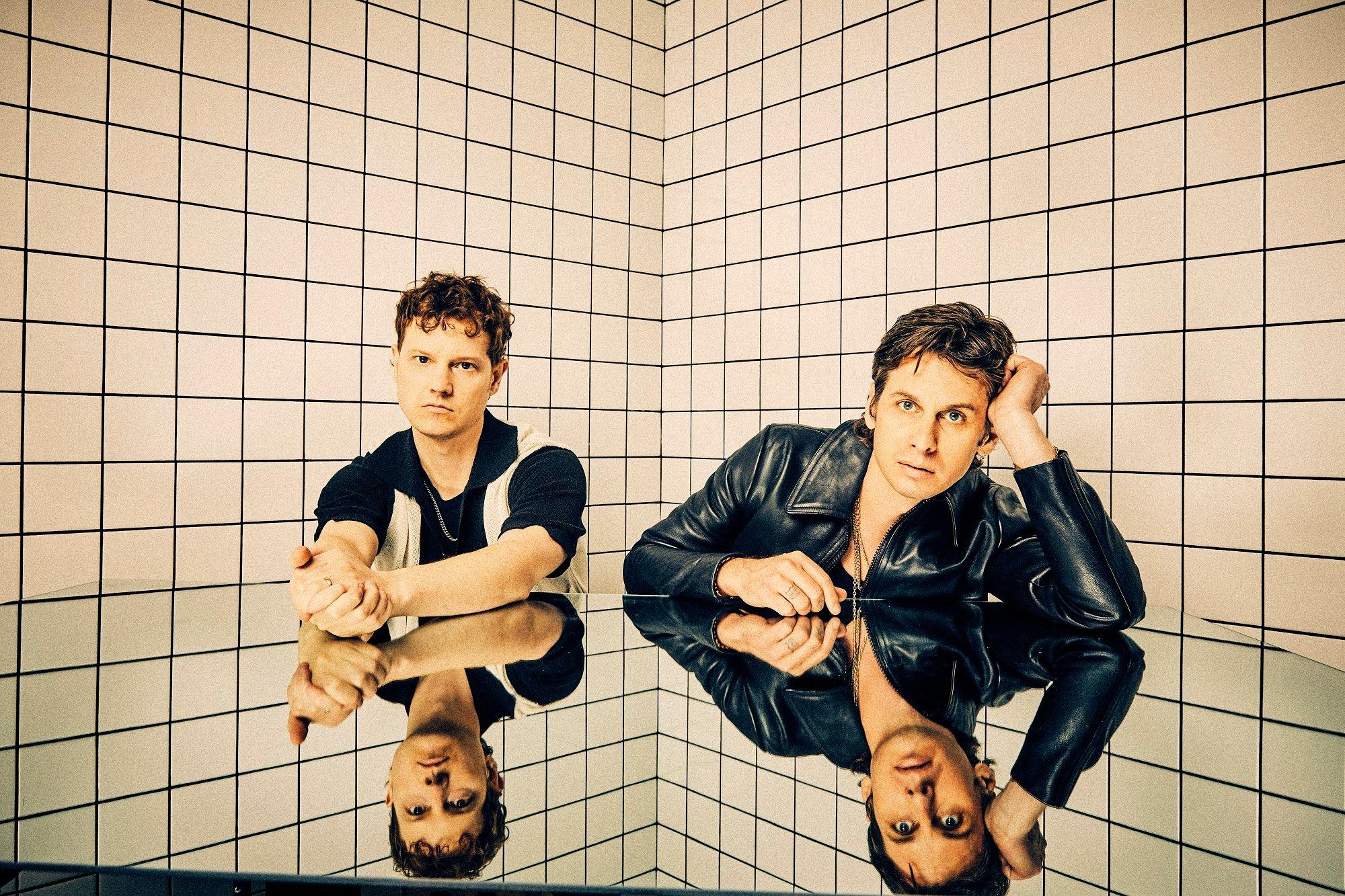
interview
On Their First Album In 7 Years, Foster The People Explore A New State Of Mind
"This feels like a new chapter of life," Mark Foster says of creating Foster The People's latest album. Sonically expansive, 'Paradise State of Mind' mines Foster's own experience for a deeply personal and widely grooving record.
Over the seven years between Foster the People's last album, 2017's Sacred Hearts Club, and their forthcoming, Paradise State of Mind, everything changed for Mark Foster.
He got sober in 2018, and married the following year. In 2021, the band's founding drummer Mark Pontius, left Foster the People during the thick of the pandemic. These profound changes encouraged Foster to look inward. With touring completely off the table at that point, he took the time he never had since he started Foster the People to work on himself.
"I just dove into myself, really unpacking a lot of things emotionally, psychologically. Finding out who Mark is outside of music and getting comfortable with that," Foster tells GRAMMY.com.
Foster expresses that his success in music was tied to a deep sense of scarcity and self-doubt. "When you start performing you want to be seen, and you want to be heard. A lot of times that can be tied to the feeling that you're not seen, and you're not heard. So, it creates this hole to connect with people," Foster says. "If you don't figure out how to fill that hole with something else you can be really driven, but it's coming from this place of deep insecurity. And so a lot of the work was trying to heal that part of myself."
Foster gave himself "a couple inches of breathing room" to create without any concern for what people might think. He likened the process to being a child.
"A child doesn't have a point of reference for art. They just respond. They think what they think. They do what they do. They're not judging themselves. They're not afraid of judgment from others. They're just playing and the feeling of when that's happening is the best because I'm completely present," Foster says.
In that present state of mind, Foster explored new musical territory for Paradise State of Mind, which arrives Aug. 16. He dove into the disco/funk crossover brought about by artists like Nile Rodgers in the late '70s and early '80s, and employed synth stylings similar to that of P-Funk’s Bernie Worrell.
Foster the People has always had a certain amount of funk, an example of which is the choppy guitar of their classic song, "Sit Next To Me." But the results of Foster’s research show up in full force on new songs like "Take Me Back" which includes deep grooves, a very active bassline, and a hard shift into that historic, messy funk after the second verse. "Feed Me" sees Foster provide the kind of squealy, raunchy vocals prime for dealing out euphemisms and metaphors for sex.
Foster produced Paradise State of Mind himself — a first, though he had co-produced music previously. "I didn't want to initially, but there's only a handful of people in the world that I would have trusted to produce this record, and they weren't available or they didn't want to do it," Foster says. "My love for music on this record became deeper because I had to produce it."
Much of the album was produced in the legendary EastWest studios, where Foster's all-time favorite songwriter, Brian Wilson, made records with the Beach Boys. Many salient disco/funk influenced moments were written and recorded on the spot in EastWest.
"Those are my favorite parts of this record because I can hear the electricity in it," Foster says. "That's why I love songwriting in the studio. I was really intentional about trying to capture the spark of the inception of something. I think that we did that a bit throughout this record. There's a few times where I'm like, ‘There it is’."
Foster spoke with GRAMMY.com about capturing that spark when he brings Paradise State of Mind on tour, writing from a child-like perspective, and his internal work in the seven-year interim between albums.
Is there one song on 'Paradise State of Mind' where the child really came out to play?
There are flourishes of it throughout the record, but as a whole, "Glitchzig" to me was returning to form from a long time ago. I was making music like that leading up to Torches. It's an evolved version of that because I’m a more experienced musician now, but the kid’s all over that song.
Is that child-like mindset what you’re referring to in the album title: 'Paradise State of Mind'?
To me, the title is one of the themes on the record. One of the biggest battles for me is getting stuck in my head and that leads to isolation. Then it becomes this downward spiral. The more isolated I get, the more anxious I get, or the more fearful I get of the world.
There's a lot of themes that come out of the spirit trying to break free from the mind. There's tension in that. That's what being human is. We are these spiritual beings, I believe, and I know if I get super internal and I’m operating from a place of scarcity within myself I can get really selfish. I can be full of fear because there are so many things happening in life that we're not in control of.
But the converse of that is when I can zoom out, see life as a whole, and accept the fact that I'm not in control of most of it. Then I can start to step into peace a little bit. Knowing that I am just part of this thing that is going to move forward with or without me. So, just try to enjoy it.
How did seeing life as a whole in that way fuel the music-making process?
"Paradise State of Mind" was kind of that to me. I wrote that with Paul Epworth in London. He was that big brother that was just like, "Mate. It's okay. You're okay. Art is a space that's meant to be free. You can say anything."
In terms of social atrophy, not touring at that point for four years, going dark on social media, having no back-and-forth with fans. I had been doing a lot of that deep work of identity and my identity attached to music. So, I hadn't had any of that stuff that I'd gotten confidence from or felt connected through. For me, observing society and culture is such a muse. I'm always thinking of the future, studying trends, and trying to feel or predict where things are going.
Connecting with another artist eased those parts of myself. It opened up that writer's block in a way where it was like, "I'm just gonna be brave, and I'm gonna be honest."
But I didn't want to write a dark record, either. I didn't want to point fingers. I didn't want to be on a soapbox. I didn't want to beat a horse talking about things that everybody else was talking about. So on a lot of this record, I dove within myself. I talked about my experience and that felt honest, but it also felt hopeful. I did that because I needed to feel hopeful.
You mentioned that you’re looking to the future to inform your songwriting, but this album also explores past musical eras. How did you bring the past and the future together when you were making this album?
To be frank, the way that I write operates from a childlike flow state which is nonjudgmental and really based in improv. I can have an intention of going in to make a record, but a lot of times I don't know what songs are about until the record’s done.
A part of me is always looking back at my past life. I think that is the challenge of what it is to be human. And that's something that I'm working on a lot, which is to stay present. I think there are so many parts of me that can beat myself up over the past or reflect upon the past in a nostalgic way. Or I can future trip. Be worried about what's coming. Be anxious about things that I can't control, but all I have is right now.
So, I try every day to be in the right now, but within that, it's inherently human to reflect. That's how we grow.
Coming back to making music after that break, did you make any discoveries about the meaning of previous Foster the People songs that in turn inspired songs on this new record?
Not particularly. This feels like a new chapter of life. There was a point over the pandemic where I almost stepped away from the band when Mark Pontius left. He was my first phone call when I started the band. I knew if I wanted to start a band, he was my dream drummer.
The shift of that combined with this state of the world, and then combined with this new chapter of being married, I really had to take deep stock into what I wanted to do next with my life.
When I wanted to make music again with Foster the People I knew it was going to be a heavy lift and it was. But it was okay, because once you're bit by that thing, you know you have to do something. You're compelled to do it. You're almost rejecting yourself if you don't.
Once I stepped back into it the whole thing felt like a new experience. What does making music feel like to me now? What is the band going to feel like now? Not attaching too much baggage to it. Or too much of the past.
How do you feel about getting back on the road in this new chapter? Are you going to try and recreate that spark you had in the studio?
I'm really excited to connect with people. That's something I've really missed. To connect with our fans. To connect with audiences. Obviously from the stage, there's that connection, but then the conversations that happen on tour. The personal connection.
I feel like I need that. I also feel like we can provide that. I want to provide a space where people can come and feel safe to be themselves and connect with each other which probably sounds like some hippie bullsh-t. It's a cliche. But I have to remind myself of that because it's so powerful.
It's gonna be new. That's the other part to me. I don't want it to be a replication of what the record is. Songs are living, breathing things. They continue to evolve and change over time. That's what we're exploring right now in rehearsals. Let's learn the songs to form as they were written. Then let's figure out where we can break them.
A lot of the guys that we're playing with now come from a jazz background. They're very comfortable improving. That's going to be a big part of this live show. Stepping out and creating something new that you can only see or hear if you're in the room with us that night.
The moments when we're off-book have been my favorite moments about rehearsing. It's brought me to tears already. It's the times when we're exploring something, and the whole thing feels like it's about to fall apart. That's the best feeling for me. I'm excited about stepping into that. Stepping into the unknown.
Latest News & Exclusive Videos

Watch Loretta Lynn Win Best Country Album In 2005
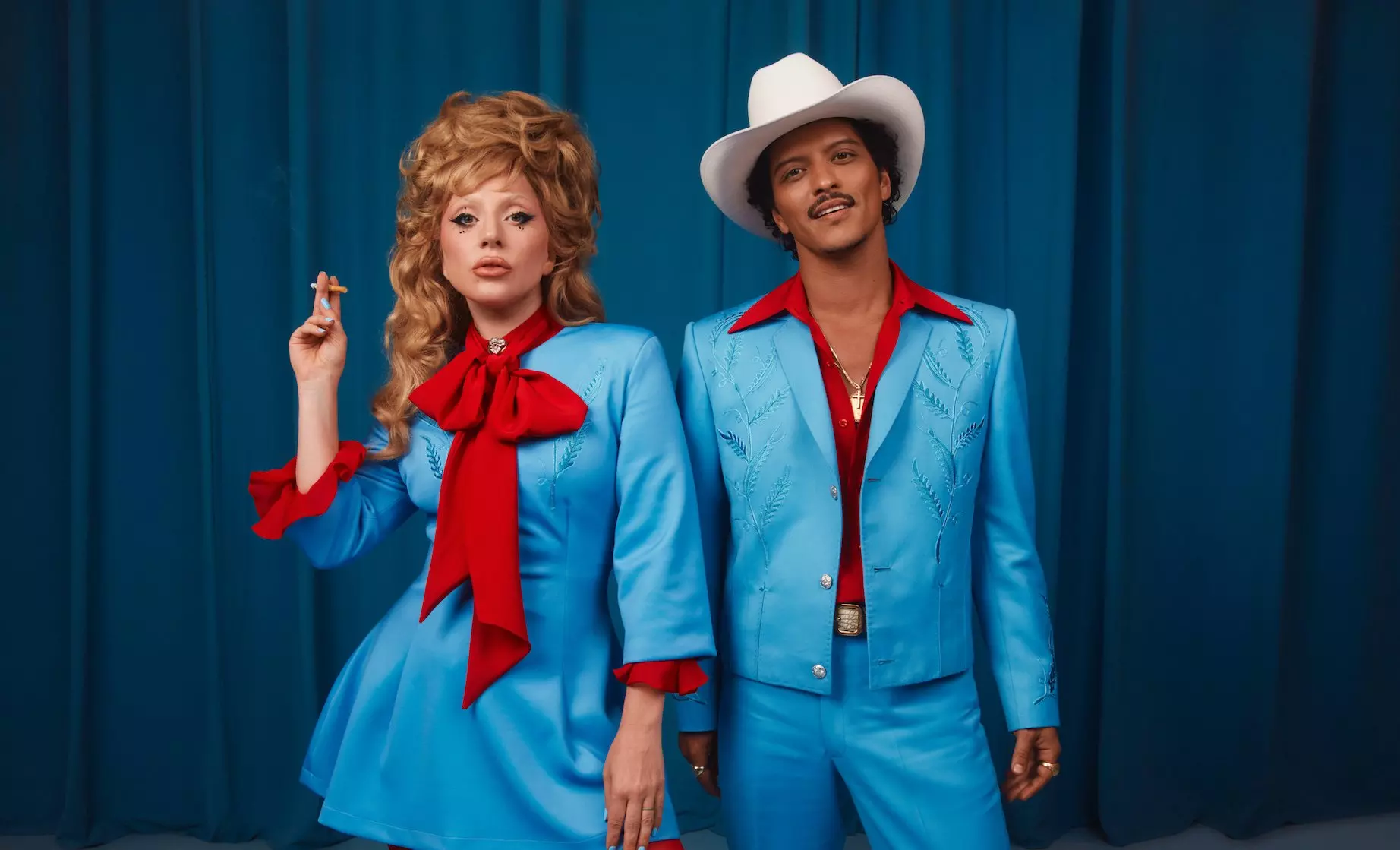
New Music Friday: Listen To Songs From Lady Gaga & Bruno Mars, LISA & Rosalía, Benson Boone & More
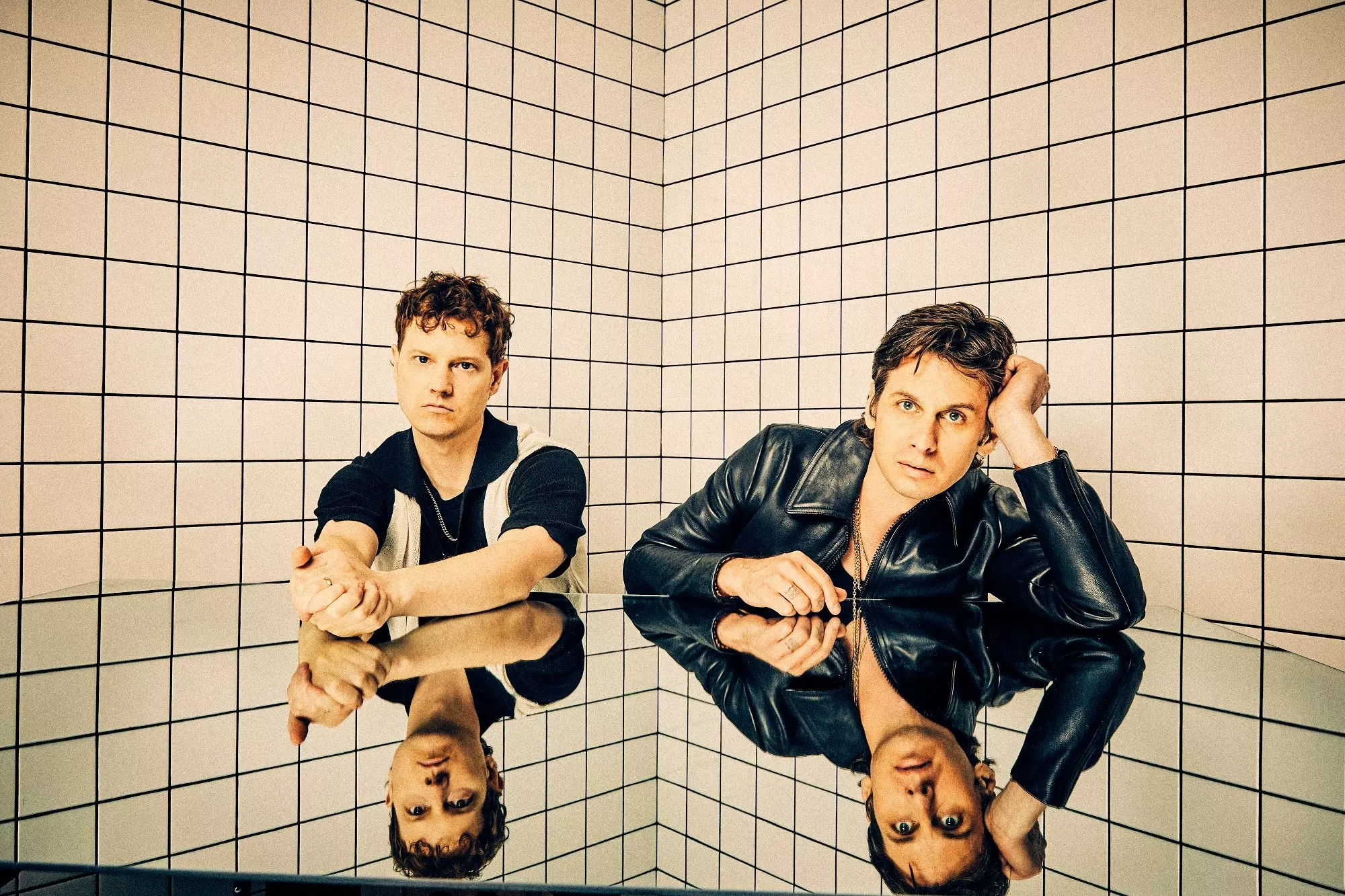
On Their First Album In 7 Years, Foster The People Explore A New State Of Mind
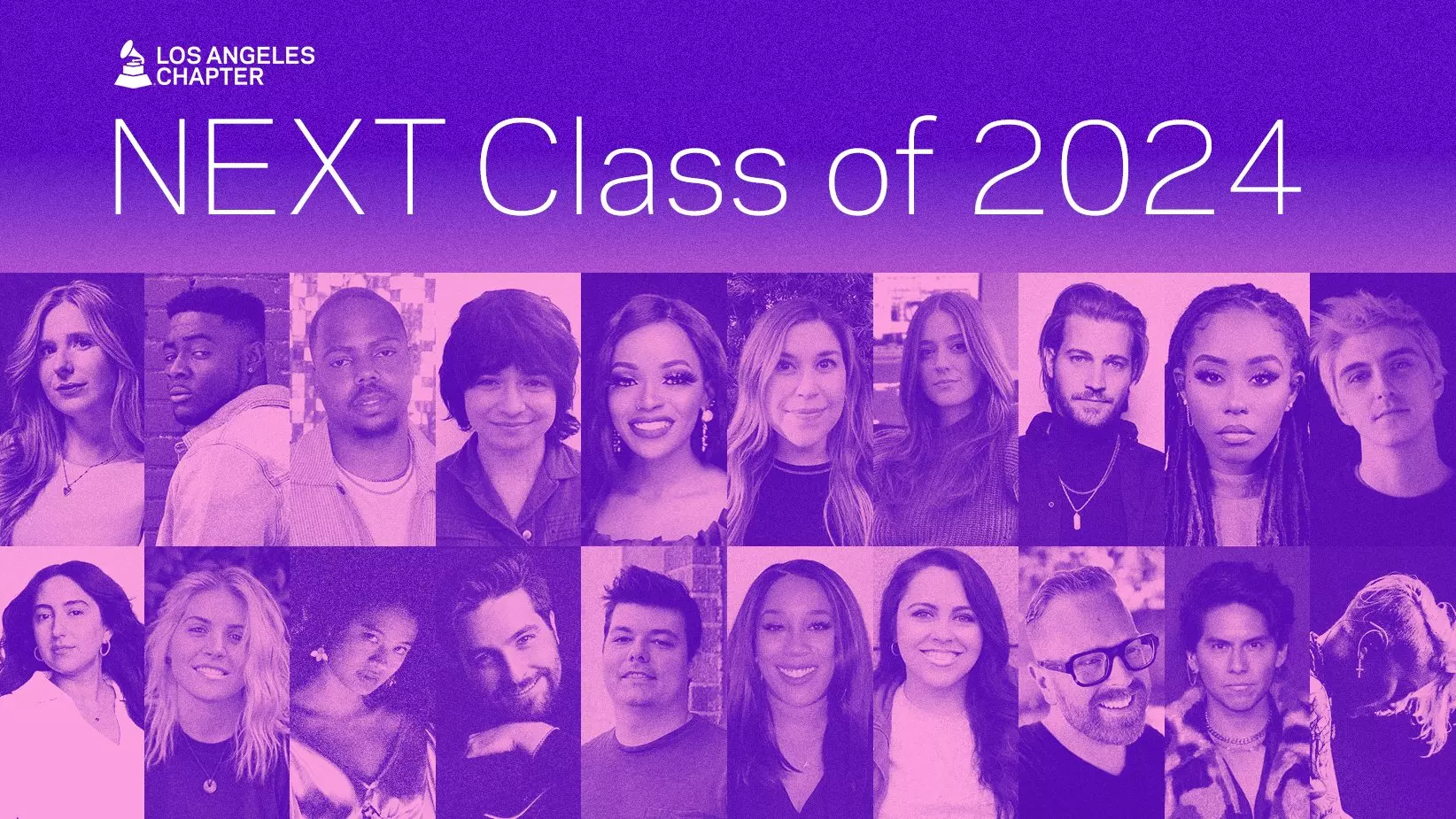
The Recording Academy's Los Angeles Chapter Celebrates The NEXT Class Of 2024: Building Community For Future Leaders
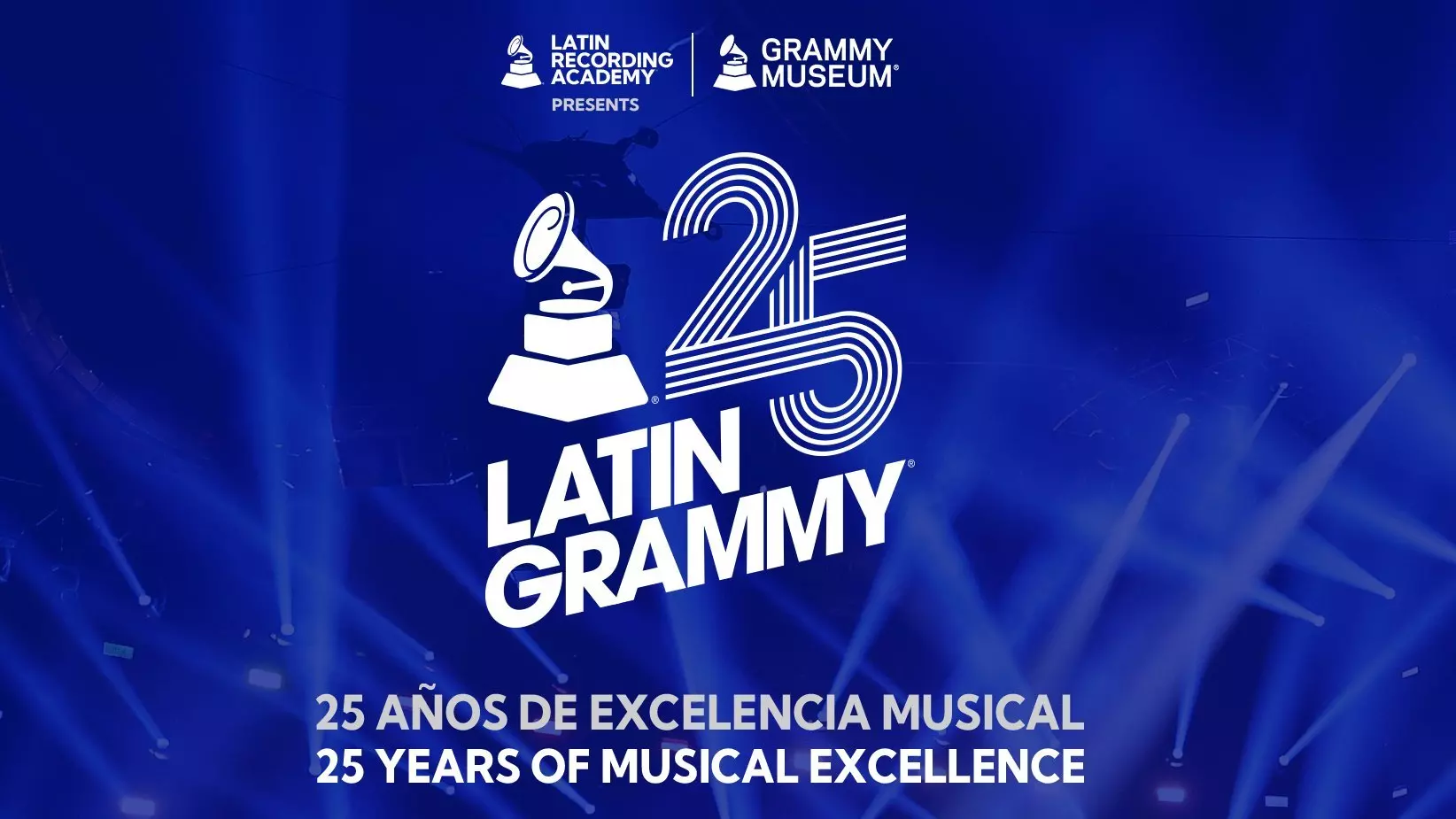
New Latin Recording Academy Exhibits In New York, Los Angeles & Miami To Celebrate The 25th Anniversary Of The Latin GRAMMYs: Launching September 2024
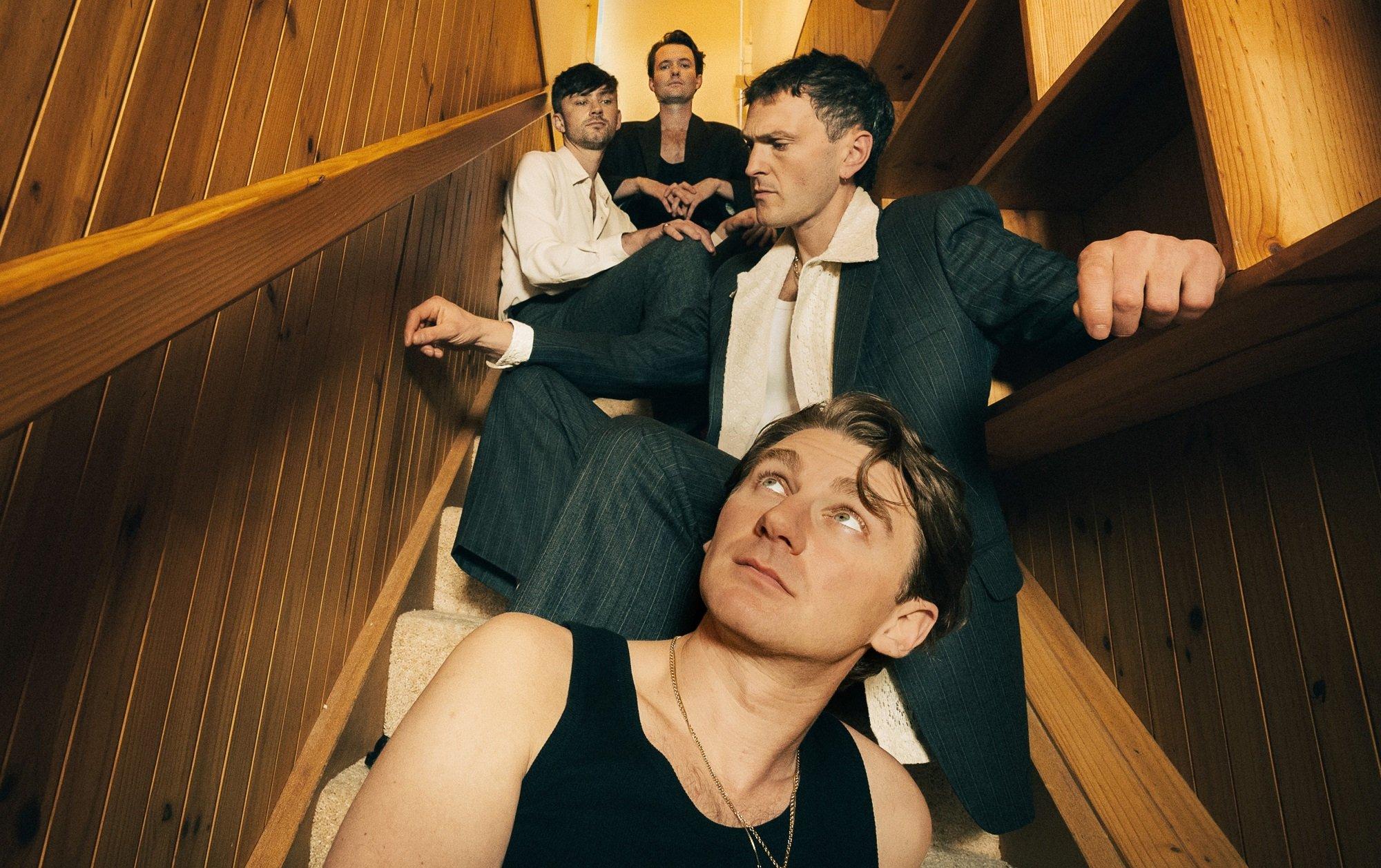
Photo: Drewby Perez
interview
Ladies And Gentlemen, Glass Animals Are Floating In Space
For Glass Animals, breaking through with their last album during the pandemic was an isolating experience. They brought those feelings to the fore with 'I Love You So F—ing Much,' where the Englishmen embrace a sort of majestic, celestial loneliness.
Remember the atmospheric river of 2024? Glass Animals' Dave Bayley thought he'd drown in it. He'd holed up in a cheap Airbnb to write his band's latest album, I Love You So F—ing Much — and soon realized why it was so cheap.
"When I got there, I realized why. It was one of those stilt houses, hanging off the edge of a cliff," Bayley tells GRAMMY.com. "There was s— flying down and trees coming out of the ground, flying down the mountain. I was like, I'm dead. This is it. This is the end."
Late at night, observing the bedlam of the natural world, Bayley didn't feel planted on terra firma at all; he felt as if he was floating in space. Which turned out to be the impetus for the English indie-psych-poppers' latest statement — space being a metaphor for disconnection and unmooring. (The album arrived July 19 via Republic; Bayley remains the sole producer.)
"I think I had a lot of imposter syndrome, and felt very disconnected from reality as well," Bayley says of the Covid era — which unfortunately dovetailed with the breakout success of their last album, Dreamland. But by some strange alchemy, Glass Animals spun that feeling into emotional warmth.
As you absorb songs like "Creatures in Heaven," "A Tear in Space (Airlock)" and "Lost in the Ocean," read on for an interview with Bailey about how this celestial, lonesome, yet oddly swaddling and comforting album came to be.
This interview has been edited for clarity.
How would you describe the four-year gap between Dreamland and I Love You So F—ing Much?
Like lifetimes, honestly. And at the same time, it sort of feels like yesterday as well.
It's very, very confusing — because we finished Dreamland, and then Covid hit. We were about to release it, and then we postponed, and postponed, and realized the pandemic is not going away. We promised people the album; we needed to release it to, like, survive. So, we released it thinking it would probably tank. And it did something absolutely amazing, unexpected.
Most people, when something like that happens, get to be out and experience it, and see it happening in the real world — playing live shows, and they feel part of it, and it's part of them. Whereas I was trapped in my bedroom in my underpants watching it all happen through social media and email updates.
You needed to make it to survive? Say more about that.
I mean, that was our livelihood. Somehow, this has become a profession — I have to pinch myself when I say that, it's the best thing ever.
But you can't just not release music. You have to keep writing and releasing music to maintain it as a profession. We were four years out from the record before that, at that point.
Odd question: if a music career was inaccessible to you, what would be your professional destiny, as it were?
I was trying to be a doctor before all of this happened. I was four years deep into medical school, actually. Then, a series of strange and terrible things happened in my life that made me like, I want to take a break from med school.
I was using music as a therapy, almost, to get over some of the things that had happened. I was making music to feel better, really, and connected somehow. Someone, somewhere, maybe, put it on SoundCloud.
**What was the thematic seed of I Love You So F—ing Much?**
I guess that sense of detachment was a big thing — because it not only went for the duration of the pandemic, but even after the pandemic, we were touring. And because there was no insurance for people touring against Covid, we still had to isolate and bubble within ourselves. It was going to extend us another year and a half, just being in this metal tube.
It was like, the biggest shows we ever had — they were amazing. We'd walk on stage, and for an hour and a half, be slammed in the face with emotion and energy. And then we'd walk offstage back to the bus, and we couldn't interact and be part of what was happening afterwards.
It just made us all feel even more surreal — it felt like a dream.
Talk about the sound you wanted to capture.
This one, I wanted to sound a specific way; I knew the equipment to get. I got about six synths and 20 pedals that fit the sound — a couple of guitars and a drum kit that fit the sound — and I just went for it. You could turn anywhere, and the sound would fit into the context of the record.
**If you think of Glass Animals' discography as stops on a journey via train, which stop is I Love You So F—ing Much?**
We've reached this retro-futuristic stuff, and I think it's definitely a progression from the last album.
I definitely set my own kind of '90s, '80s production — and now there's a bit of a vaporwave thing going on, but it was still pretty analog and nostalgic. It seems to be almost like the train went backwards.
Then, on the songwriting side, I was trying to really make sure the core of the sounds had [integrity]; they could basically be played with guitar and voice alone. I wanted the chords to tell the story of the song as well; we'd kind of done that in the past, but I'd never really focused on it like I did this time.
I wanted the chords to keep evolving through each section of the song — just twist the atmosphere of the song in each section.
Give me a line on I Love You So F—ing Much that you feel sums up what we're talking about.
"Show Pony" is the first song; everyone creates this idea of love, and what love should be, based on what they've seen and experienced growing up. Seeing their family, seeing their friends — you're walking down the street, and you see a couple arguing, and you form these [impressions of] love.
"Show Pony" is kind of the blueprint; it gives context for the rest of it. And then, the line that comes right after it: "What the hell is happening? What is this?" I like that as the real beginning of the record, after the table of contents — the first song.
Where do you think Glass Animals will go from here?
It's a good question, because I don't really think I'm there yet. I have a few ideas — but to be honest with you, I never end up going with any of the first ideas that I have.
Before this iteration of the album, I wrote a whole other space album that just felt really cold and hollow and empty — like a vacuum. It wasn't cool; it didn't have enough emotion, and it didn't feel soulful enough. I just binned it, and sacked off; it's in the trash.
It wasn't until I stumbled on this concept of juxtaposing these kinds of small, intimate moments with the size of space, that I put two and two together — and worked out how I could do a space album without it being f—ing s—.
Explore More Alternative & Indie Music
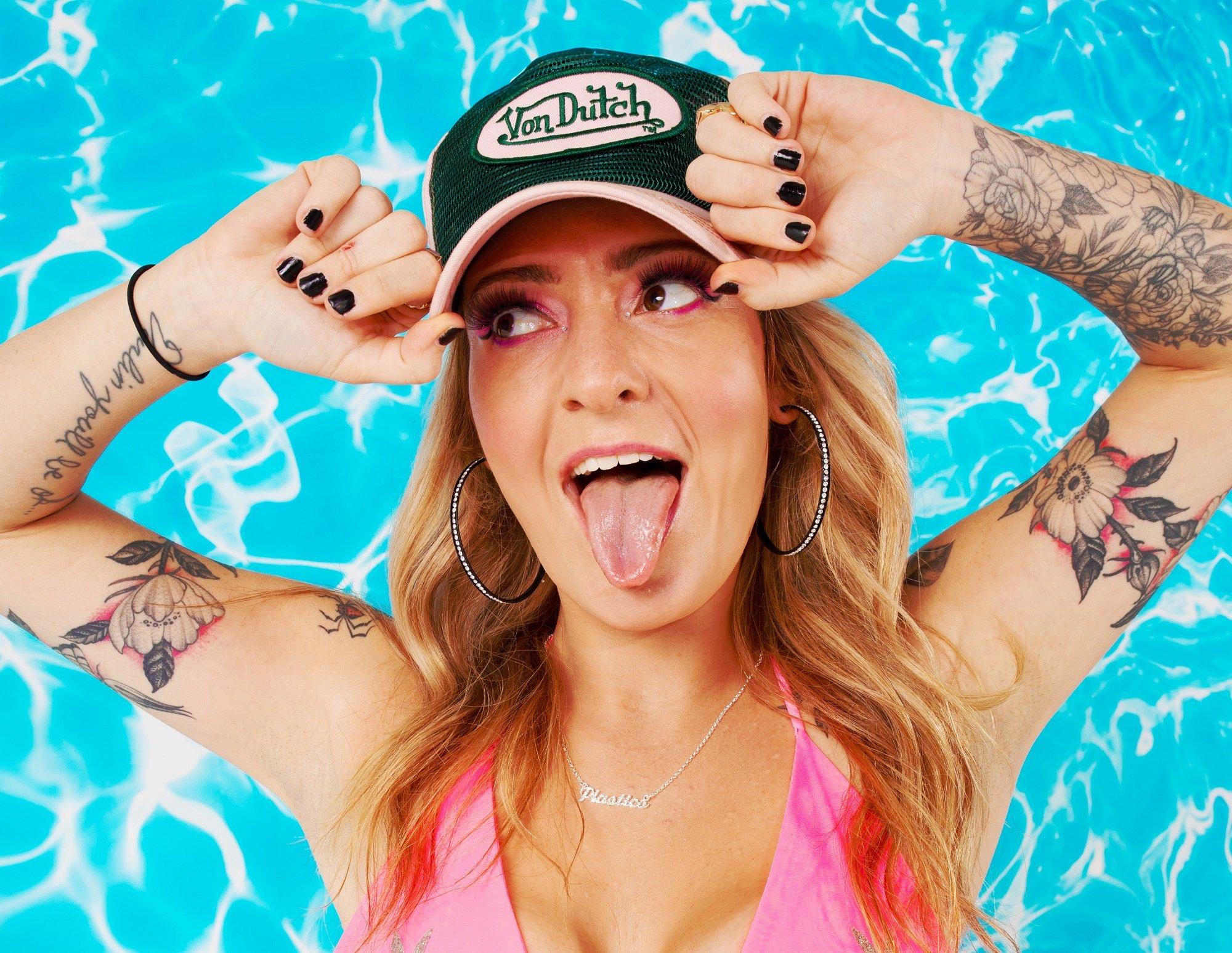
Photo: Danin Jacquay
interview
Meet Scene Queen, The "Chaotic Mess" Cleaning Up The Alternative Scene
"I'm cool taking sticks and stones thrown my way if it means that 10 years down the line there's gonna be another girl that tries to do what I do and gets zero flak for it," Scene Queen says of her take-no-prisoners album, 'Hot Singles In Your Area.'
"F*** the scene, I’m the queen!" Scene Queen announces early on her debut album, Hot Singles in Your Area. Delivered in a snarky sing-song, the exclamation serves as something of a mission statement for everything the singer has set out to accomplish with her winking metal-pop persona.
On Hot Singles (out June 28 via Hopeless Records), the artist calls out the bad behavior that’s run rampant in the alternative music scene for decades. From the insidious grooming of teen fans ("Headline spot goes to the abuser/ Half my idols are f—ing losers," she sings on blistering lead single "18+"), to the blatant discrimination experienced by female artists in the genre (opener "BDSM"), and date rape drugs and sexual assault ("Whips and Chains") — Scene Queen takes unflinching aim.
Born Hannah Collins, Scene Queen isn’t out to destroy the genre she grew up loving as a Warped Tour-obsessed teenager in suburban Ohio. Instead, she’s using her perspective as a queer female artist and knack for razor-sharp songwriting to make the scene safer, more accountable and, ultimately, more inclusive.
Featuring high-octane collaborations with the likes of The Ready Set ("POV"), WARGASM ("Girls Gone Wild") and 6arelyhuman ("Stuck"), Hot Singles in Your Area is also an unabashed pleasure ride that introduces listeners to Scene Queen’s unique brand of sexual freedom, self-love, queer pride and self-deprecating humor.
"My fans know that I'm playing into the joke of it a lot," Collins says from her home in L.A. "But a lot of people still don't understand it."
Ahead of her album release, Scene Queen opened up exclusively to GRAMMY.com about finding her voice in the metal space, the pop icons who inspired her persona (from Britney Spears to Paris Hilton, Dolly Parton, and Jessica Simpson), standing up to misogynists, homophobes and haters, and more.
How does it feel to be on the verge of finally releasing your debut album?
Really exciting! But also terrifying in a way. With [2022 EPs] Bimbocore Vol. 1 and Vol. 2, I feel like I told the story of, "Who is Scene Queen? What is this project?" Like, she's very loud and out there and opinionated, and in your face and whatever.
But this record touches on everything in my life that happened for me to become this version of myself — why I needed to become Scene Queen. I made a whole record about being independent and reclaiming my power and sticking up for myself and sticking up for people in the scene…In a weird way, I'm making jokes this entire album, but it’s a vulnerable album in the sense that I'm revealing a lot via the lens of humor.
How did the Scene Queen persona come about?
I grew up in the alternative space. Like, I went to a million Warped Tours and all of that stuff. I was at shows in Cleveland, like, every weekend during high school. I've been listening to bands like Hawthorne Heights and stuff since I was 8 or 9 years old. So when I was 18, I moved out to L.A. from Ohio, and that was around the time that all of these bands started dropping members left and right because they were finally getting called out for, like, predatory behavior or what have you — just being, generally, not great people.
Coming into adulthood, you start looking at things through a different lens, like, Oh, that was a weird interaction or Oh, I feel weird that they let me do that at 16 years old. It really felt like, as a woman, the scene wasn't a safe space for me anymore. Then suddenly, during COVID, the only thing I wanted to listen to was, like, super alternative music.
TikTok introduced me to a lot of bands like The Home Team, that were combining pop-punk with, like, R&B — I always loved that experimental stuff. And I was listening to a ton of BABYMETAL and WARGASM, experimental metal-pop stuff. But I told myself the only way I would come back into the alternative space was if I did it on the terms of what I wished I’d had in the scene growing up.
So now I operate my entire persona as this elevated version of myself because I feel like people need that. Scene Queen is like a superpower for me in a way — she helps in my day-to-day life as Hannah, too.
What makes the Y2K era such a key element of the Scene Queen aesthetic?
Growing up in that time, super hyper-feminine women were often vilified, especially in rock music. If you were super girly at a show, people would assume that you were there to sleep with the band. Like, you weren't as worthy of being there as a man. When I was in high school, I actively chose to dress in mostly all black because I just didn't think I would be taken seriously.
So I wanted to pull that whole era into it and just be like, I'm actively going against everything I grew up with and what the scene told me was acceptable. And now I'm gonna be the antithesis of what any of the people that were misogynistic — or also just underestimated me — would want from me. And now I make the choice every day to irritate those people. [Grins.]
Growing up, were there female artists you looked up to in the scene?
I just came off of a tour with PVRIS, and [Lynn Gunn] was one of the first queer people I ever knew of within the scene. Which is so crazy to think of back then, that I only had one example of that. She was just, like, openly queer and didn't feel the need to... I don't know, she didn't come out to anyone, she just always existed that way and people didn't criticize her for it. It was the first time that I saw that and was like, Oh, maybe I would be able to do that someday."
But behind the scenes, she was on the receiving end of so much misogyny, because men didn't think they could get something out of her, 'cause they knew that she was a lesbian and whatever. She was enduring 10 years of misogyny and homophobia so that someone like me could come around 10 years later and be this voice in the scene.
So it's cool that I'm getting recognition, but the only reason that I'm able to do this now is because so many women just took extreme hate and terrible things behind the scenes before me. And I still get massive flak for it now. The end goal of all of this, and I think if you ask any woman, they'll tell you the same thing: I'm cool taking sticks and stones thrown my way if it means that 10 years down the line there's gonna be another girl that tries to do what I do and gets zero flak for it. Someday I hope we get there.
What other female artists helped inspire your Scene Queen persona?
So there's two different versions of this answer. On the pop side, I'm so obsessed with 2000s pop princesses and also just pop icons in the sense of, like, that bimbo aesthetic. I allude a lot to Britney Spears in my music. Also Paris Hilton. Dolly Parton. Jessica Simpson. Women that, like, knew how they were perceived by the media and played into it, but were so the other way.
Like if you've ever seen the Paris Hilton documentary [2020’s This Is Paris], she talks about how she put on this voice and everything, because people were just gonna assume that she was dumb anyway. So she completely capitalized on that and was like, "That's fine, I'll take your money and make my career successful. If you're already gonna assume negatively about me, then that's my superpower." Those people really inspired me, and that's very much the aesthetic drive behind my project.
In the alternative space, there are bands that I grew up with that I was also super into like We Are the In Crowd, VersaEmerge, In This Moment. So there's a lot of women that have helped create the Scene Queen project without knowing.
How much of the album is autobiographical?
It tells the whole tale of coming [to L.A.] and getting my foot in the door, the music industry experience of it all. No one talks about having this second coming of age in your twenties and thirties where you're actually figuring out who you are. I was one of those people that didn't come out, or didn't even fully process that I was queer, until I was in my twenties.
I was just so scared about it 'cause I grew up in a small conservative town. And then I came here and was just like, I need to work in music so bad that I don't even want to think about dating! [Eventually,] I realized I spent all this time trying to be independent and confident. And now I'm going into the dating world.
Some days you feel like an absolute sex god and the next morning you wake up, and you're on a first date and you have word vomit, and you don't know how to interact with people. So you get a song like "Oral Fixation" where it's just about having absolutely no game when you're dating for the first time. The record really tells the whole story of becoming all of this chaotic mess that is Scene Queen, which is both making fun of itself and hypersexual, and this, and this, and this.
Read more: 15 LGBTQIA+ Artists Performing At 2024 Summer Festivals
You play around so much on the album by mixing really serious topics with a sense of humor. How do you balance that in your songwriting?
I always come into a session with the baseline idea of subject matter and title. This album was a lot easier because it's a concept album in a sense, and I thought of all these [explicit] categories that I could've used… Take "Oral Fixation," for example. That was the first song I wrote for Hot Singles other than the title track. I realized I could write it about word vomit and, like, choking on something, instead. Or, like, the last song of the record is called "Climax" because it's the high point of the record, but it’s actually a really wholesome song.
And then "BDSM" means "Beat Down Slut Metal," but also "Big Dumb Stupid Men." I decided to make that the opening track because I was getting all of these comments that were like, "Scene Queen's a man hater!" for criticizing anything men do in any capacity. This was after my song "Pink Push-Up Bra," which is so specifically about sexual assault that I was like, "OK, of I can't even criticize people that sexually assault women as being bad, then sure, I’ll put it as the first track."
What was your motivation behind the hypersexualization in some of the songs?
I think people don't understand that you can be fully confident with yourself and your sexuality and think you're a good person, and worthy of love and worthy of sexual pleasure, while also not taking yourself too seriously. You can still make fun of yourself but also know your self-worth.
As much as I make these self-deprecating jokes, at the end of the day I refuse to be treated poorly. And I think that comes across in all the songs about sexual pleasure and sexuality. You learn at a young age — especially if you've been closeted for a long time — [the feeling of] I robbed myself of so much joy for so long. I deserve to get off for something. [Laughs.] I deserve a little bit of joy in my life. So I tried to write that.
"M.I.L.F" is obviously a raunchy, very sexual song. But that song came from spending a summer in Nashville, and I was always just like, "Tennessee: conservative." But there's this huge population of people who have stayed or moved to Tennessee; who grew up listening to country music but then shied away from it because their beliefs no longer resonated with the [genre's] subject matter. So I wanted to have a song for those people who are like, "Yeah, I still wanna go chug a beer and jump off a boat on a lake, but also, I am pro-gay marriage and whatever."
I wrote a song that I knew the people who were country elitists, that would never like me anyway, would be horrified by. And the way I did that was via very explicit lyrics and the most sexual content ever. But it ends up being one of the rowdiest songs in my live set, because so many people truly do want to just put a hat on and do a line dance. They just don't want to be judged when they do it, you know?
So it ended up being this weird statement that I didn't necessarily fully think it would be, but it's one of my favorite parts of my set now. Having that little hoedown for the hoes every week is really fun for me.
I actually just attended this charity event at Stonewall for this organization called Inclusion Tennessee, where I learned that Nashville is the largest city in the country without its own LGBTQ center. Queer people in those types of communities are still fighting constantly for resources and inclusion and acceptance.
It is so wild, too, 'cause there's this discussion around Chappell Roan making that statement at Gov Ball about not performing at the White House, and then going to play in Charlotte, where North Carolina obviously has conservative views as a whole. There are so many pockets of queer communities that are actively seeking out someone that will advocate for them and give them a voice, and I think it is so cool. It's such a privilege to get to be one of those people now.
This summer, you’ll be co-headlining idobi Radio’s Summer School Tour. What are you looking forward to about that?
That tour, in and of itself, is so cool and exciting for me. Because one, it has the rotating co-headliners, which emphasizes the importance of music discovery. You have to show up at the beginning of the day to see who you want to see. Anyone that grew up with Warped Tour obviously is going to be stoked to have something like that.
But also, there are so many queer people and women and people of color on that tour. The lineup is so diverse and I feel like if that tour had existed in the 2010s and 2000s and ‘90s even, that never would've happened. So the fact that the initial launch looks that way makes me so hopeful for the future of it.
OK, last two questions: What’s the most memorable Warped Tour set you ever saw? And what are your top 3 "Bimbo" pop songs?
Most memorable Warped Tour set: I'd probably say the first time I ever crowd-surfed. I think I was, like, 13, it was to the band Sleeping with Sirens, and that was just the pinnacle of, like, "I love alternative music!"
Then as far as the "Bimbo" pop songs, hmm...I have to say "I’m a Slave 4 U" just because that Britney Spears music video is so iconic — the dancing, all of it. We gotta do a Paris Hilton song. It was hard to be in a mall food court in the late 2000s and not be humming "Stars Are Blind." Yeah, soundtrack to my youth, for sure. And then "9 to 5" by Dolly Parton even though that’s country, not pop. Like, how do you not want to trot out there to [sings], "Hopped out of bed and I stumbled to the kitchen..."? It just gets the bimbo vibes going.
Listen To GRAMMY.com's 2024 Pride Month Playlist Of Rising LGBTQIA+ Artists
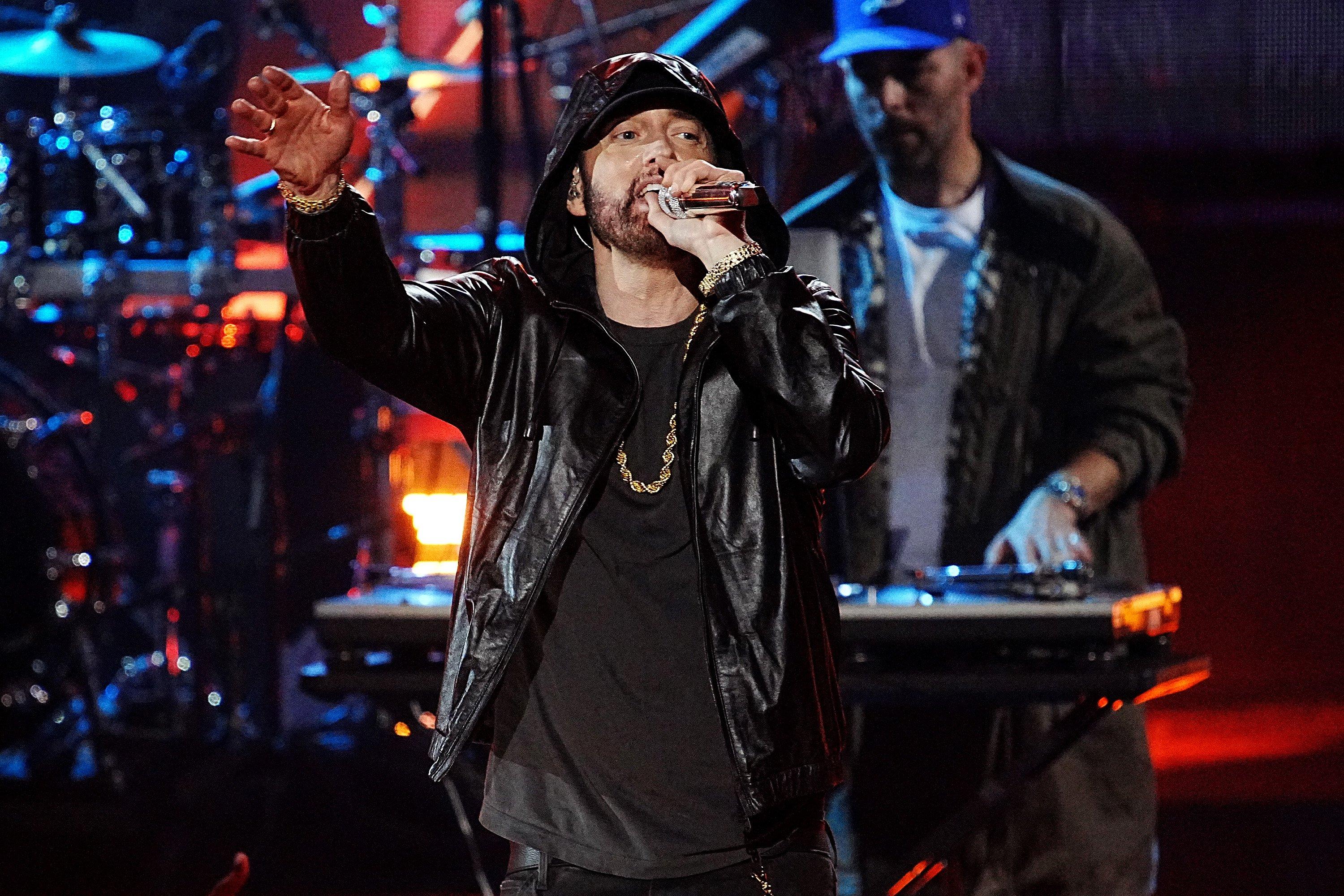
Photo: Jeff Kravitz/FilmMagic via Getty Images
list
New Music Friday: Listen To New Albums & Songs From Eminem, Maya Hawke, ATEEZ & More
Dive into the weekend with music that’ll make you dance, brood and think — by Jessie Reyez, Ayra Starr, Adam Lambert, and many more.
After the cookouts and kickbacks of Memorial Day weekend, getting through the workweek is never easy. But you made it through — and now it's time for another weekend of however you decompress. As always, killer jams and musical food for thought have arrived down the pipeline.
As you freshen up your late-spring playlist, don't miss these offerings by artists across generations, moods, genres, and vibes — from K-pop to classic country and beyond.
Eminem — "Houdini"
It looks like Dua Lipa isn't the only artist to name-drop Erik Weisz this year. In a recent Instagram video with magician David Blaine, Eminem hinted at a major career move, quipping, "For my last trick, I'm going to make my career disappear," as Blaine casually noshed on a broken wineglass.
With Em's next album titled The Death of Slim Shady, fans were left in a frenzy — was he putting the mic down for good? If "Houdini" is in fact part of Eminem's final act, it seems he'll be paying homage to his career along the way: the song includes snippets of Em classics "Without Me," "The Real Slim Shady," "Just Lose It" and "My Name Is."
The superhero comic-themed video also calls back to some of the rapper's iconic moments, including the "Without Me" visual and his 2000 MTV Video Music Awards performance. It also features cameos from the likes of Dr. Dre, Snoop Dogg, 50 Cent, and Pete Davidson — making for a star-studded thrill ride of a beginning to what may be his end.
Read More: Is Eminem's “Stan” Based On A True Story? 10 Facts You Didn't Know About The GRAMMY-Winning Rapper
Maya Hawke — 'Chaos Angel'
"What the Chaos Angel is to me," Maya Hawke explained in a recent Instagram video, "is an angel that was raised in heaven to believe they're the angel of love, then sent down to do loving duties."
Chaos Angel, the third album by Maya Hawke, out via Mom+Pop Records, is an alt-rock treasure with a psychologically penetrating bent. Smoldering tracks like "Dark" and "Missing Out" plumb themes of betrayal and bedlam masterfully.
Jessie Reyez & Big Sean — "Shut Up"
Before May 31, Jessie Reyez's 2024 releases have come in the form of airy contributions for Bob Marley: One Love and Rebel Moon. And for the first release of her own, she's bringing the heat.
Teaming up with fellow rapper Big Sean for "Shut Up," Reyez delivers some fiery lines on the thumping track: "They b—es plastic, that b— is a catfish, oh-so dramatic/ And I'm sittin' pretty with my little-ass t—es winnin' pageants." Big Sean throws down, too: "B—, better read the room like you telepromptin'/ And watch how you speak to a n—a 'cause I'm not them."
Foster the People — "Lost In Space"
Indie dance-pop favorites Foster The People — yes, of the once-inescapable "Pumped Up Kicks" fame — are back with their first new music since 2017's Sacred Hearts Club. The teaser for their future-forward, disco-powered new song, "Lost in Space," brings a psychedelic riot of colors to your eyeballs.
The song is equally as trippy. Over a swirling, disco-tinged techno beat, the group bring their signature echoing vocals to the funky track, which feels like the soundtrack to an '80s adventure flick.
"Lost in Space" is the first taste of Foster The People's forthcoming fourth studio album, Paradise State of Mind, which will arrive Aug. 16. If the lead single is any indication — along with frontman Mark Foster's tease that the album started "as a case study of the late Seventies crossover between disco, funk, gospel, jazz, and all those sounds" — fans are in for quite the psychedelic ride.
Arooj Aftab — 'Night Reign'
Arooj Aftab landed on the scene with the exquisitely blue Vulture Prince, which bridged modern jazz and folk idioms with what she calls "heritage material" from Pakistan and South Asia. The album's pandemic-era success threatened to box her in, though; Aftab is a funny, well-rounded cat who's crazy about pop music, too. Crucially, the guest-stuffed Night Reign shows many more sides of this GRAMMY-winning artist — her sound is still instantly recognizable, but has a more iridescent tint — a well-roundedness. By the strength of songs like "Raat Ki Rani" and "Whiskey," and the patina of guests like Moor Mother and Vijay Iyer, this Reign is for the long haul.
Learn More: Arooj Aftab, Vijay Iyer & Shahzad Ismaily On New Album Love In Exile, Improvisation Versus Co-Construction And The Primacy Of The Pulse
Willie Nelson — 'The Border'
By some counts, Willie Nelson has released more than 150 albums — try and let that soak in. The Red Headed Stranger tends to crank out a Buddy Cannon-produced album or two per year in his autumn years, each with a slight conceptual tilt: bluegrass, family matters, tributes to Harlan Howard or the Great American Songbook. Earthy, muted The Border is another helping of the good stuff — this time homing in on songwriters like Rodney Crowell ("The Border"), Shawn Camp ("Made in Texas") and Mike Reid ("Nobody Knows Me Like You.") Elsewhere, Nelson-Cannon originals like "What If I'm Out of My Mind" and "How Much Does It Cost" fold it all into the 12-time GRAMMY winner's manifold musical universe.
ATEEZ — 'GOLDEN HOUR : Part.1'
South Korean boy band ATEEZ last released new material with late 2023's The World EP.Fin: Will. Now, they're bringing the K-pop fire once again with their 10th mini-album, GOLDEN HOUR Part.1.
Released in a rainbow of physical editions, the release was teased by a short clip for "WORK," where ATEEZ pans for gold like old prospectors in an off-kilter desert scene, then proceeds to throw the mother of all parties. As for the rest of GOLDEN HOUR, they bring flavors of reggaeton ("Blind), wavy R&B ("Empty Box") and reggae ("Shaboom") — further displaying their versatility as a group, and setting an exciting stage for Part.2.
Learn More: Inside The GRAMMY Museum's ATEEZ & Xikers Pop-Up: 5 Things We Learned
Ayra Starr — 'The Year I Turned 21'
Beninese-Nigerian singer and GRAMMY nominee for Best African Music Performance Ayra Starr pays homage to the big two-one with her second album, The Year I Turned 21, which she's been teasing all month. We've seen the crimson, windswept cover art; we've soaked up the 14 track titles, which reveal collaborations with the likes of ASAKE, Anitta, Coco Jones, and Giveon. Now, after small tastes in singles "Commas,""Rhythm & Blues" and "Santa" (with Rvssian and Rauw Alejandro), we can behold what the "Rush" star has called "excellent, sonically amazing" and "unique, because I've been evolving sonically."
Watch: Ayra Starr’s Most Essential “Item” On The Road Is Her Brother | Herbal Tea & White Sofas
Adam Lambert — "LUBE" & "WET DREAM"
The "American Idol" and Queen + Adam Lambert star is turning heads — for very good reason. He's going to release AFTERS, a new EP of house music and an unflinching exploration of queerness and sex-positivity. "I throw many house parties and my aim was to create a soundtrack inspired by wild nights, giving a voice to our communities' hedonistic desires and exploits," Lambert explained in a press release.
The first two singles, "LUBE" and "WET DREAM," achieve exactly that. From the pulsing beat of "LUBE" (along with the "Move your body like I do" demand of the chorus) to the racing melody of "WET DREAM," it's clear AFTERS will bring listeners straight to a sweaty dance floor — right where Lambert wants them.
Wallows Talk New Album Model, "Entering Uncharted Territory" With World Tour & That Unexpected Sabrina Carpenter Cover
.jpg)
Photo: Courtesy of Siiickbrain
video
ReImagined: Watch Siiickbrain Deliver A Grungy Cover Of Nirvana’s GRAMMY-Nominated Single, “All Apologies”
Alternative newcomer Siiickbrain offers her take on Nirvana’s “All Apologies,” a track about shamelessly looking beyond societal norms.
Over two decades ago, Kurt Cobain famously declared his unapologetic stance — from supporting gay rights to his skepticism about reality — in Nirvana's 1993 GRAMMY-nominated single "All Apologies."
Cobain probed in the opening verse, "What else should I be?/ All apologies," Cobain questioned in the opening verse. "What else could I say?/ Everyone is gay/ What else could I write/ I don't have the right."
In this episode of ReImagined, alternative newcomer Siiickbrain delivers her rendition of the In Utero track, channeling the '90s aesthetic with a vintage camera. Like Cobain, Siiickbrain uses her songwriting to confront and address her mental health.
"[My struggles with mental health] made me want to speak on it within my music, and it kind of gave me a foundation for what I'm doing," Siiickbrain said in an interview with Kerrang! "It gave me a purpose to write about certain things and bring awareness to how common these feelings are."
On March 29, Siiickbrain released "when i fall," featuring Shiloh Dynasty and No Love For The Middle Child, which she describes to Alternative Press as based on "true events that were written and performed as [No Love For The Middle Child and I] were recovering from the challenges of a relationship while simultaneously creating music together."
Press play on the video above to hear Siiickbrain's cover of Nirvana's "All Apologies," and remember to check back to GRAMMY.com for more new episodes of ReImagined.



